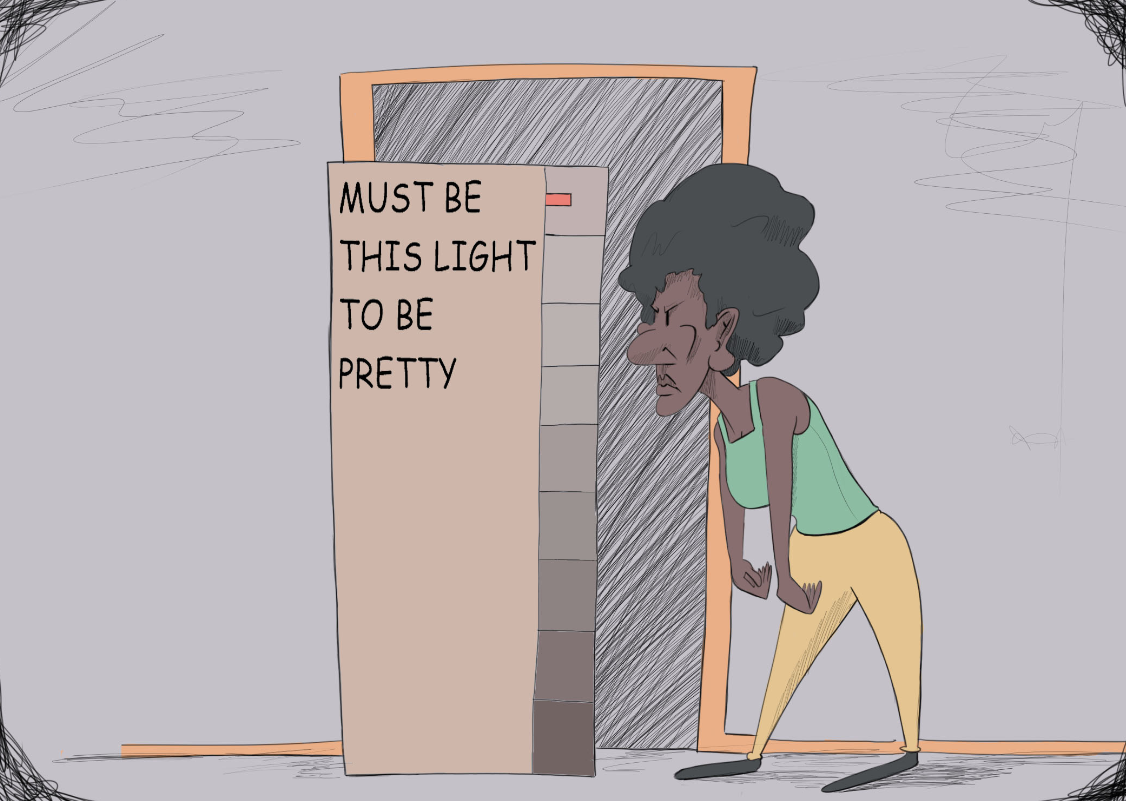Colorism, or prejudice based on the relative skin tone, hair texture and facial features among persons of the same race, has played a role in American society since the days of slavery. Lighter skin black people were favored over those with darker skin. Lighter skin slaves were able to get jobs working in the slave owners’ home, while the darker skin slaves were forced to work in the fields. You may be wondering why this is being brought up when slavery was over a century ago. Slavery may be long gone, but colorism has found a way to stay.
Growing up as a dark skin African—American woman, I have witnessed colorism from family members, friends and of course, on social media. Just like some girls who look like me, I’ve felt insecure because I didn’t look like the light skin girls. For some reason, it just seemed as if the light skin girls were always praised and in certain situations, this was the truth.
Rappers and singers often showcase the light skin or “exotic” women, but it is rare to see them show off a darker skin and natural beauty in any of their music videos. Men just believe that the light skin, “redbone” girls are more beautiful and classy, whereas a chocolate-skin woman is known as being ratchet or ghetto.
Rappers and singers often showcase the light skin or “exotic” women, but it is rare to see them show off a darker skin and natural beauty in any of their music videos. Men just believe that the light skin, “redbone” girls are more beautiful and classy, whereas a chocolate-skin woman is known as being ratchet or ghetto.
Colorism was highlighted with the separation of slaves, and now that slavery is over, the black community still uses it to separate the two. At the end of the day, if we were to go in front of people who are not in the same racial group, they would identify us all as black.
“If you’re black, stay back; If you’re brown, stick around; If you’re yellow, your’e mellow; If you’re white, you’re all right,” Big Bill Broonzy sang about America’s Jim Crow system. This rhyme highlights what we already knowbeing black is synonymous with disapproval.
We should all be able to shout out “My Black is Beautiful” and believe it without feeling disapproval from our own community. Women being told, “You’re pretty for a dark skin girl,” isn’t a compliment. You’re beautiful because that is who you are.
Just a couple days ago, I was scrolling down my timeline on Twitter when I came across a post. The post was by an appreciation page for black women. The page was posting darker skin women and showcasing their beauty. In the comments, someone asked “What about the light skin women?” The page responded, saying they choose not to discuss why they post what they do and that they have their reasons.
I don’t see the reason why we all can’t embrace each other’s beauty. We all come in different tones and shapes for a reason. If we all looked the same, the world would be bland. We shouldn’t discriminate against one another just because we look different and because of the way we are treated by people outside of our race, we cannot help that or choose someone’s preference.
So, what is the difference between colorism and racism?
“Colorism-prejudiced attitudes and/or discriminatory acts against people based on the color (shade or tone) of their skin. Racism- prejudiced attitudes and/or discriminatory acts against people based on their actual perceived race status. Colorism is a product or symptom of racism,” author Sarah L. Webb said. So, if you’re a colorist, you are basically a racist. Discriminating against those who look different than you or are darker than you is racist.
Colorism takes a toll on people in the black community because people love the lighter skin women, and darker skin women are now starting to bleach their skin to gain acceptance.
We need to put an end to this before we bring our children into this cruel world. We did not choose the color we are in and we shouldn’t be seen for our color. Our color does not define us. Under our skin, we are built the same, with the same potential, strength and intelligence. We need to embrace our beauty from within, because we are beautiful.
Te’Kayla Pittman is a 19-year-old mass communication freshman from Atlanta, Georgia.







